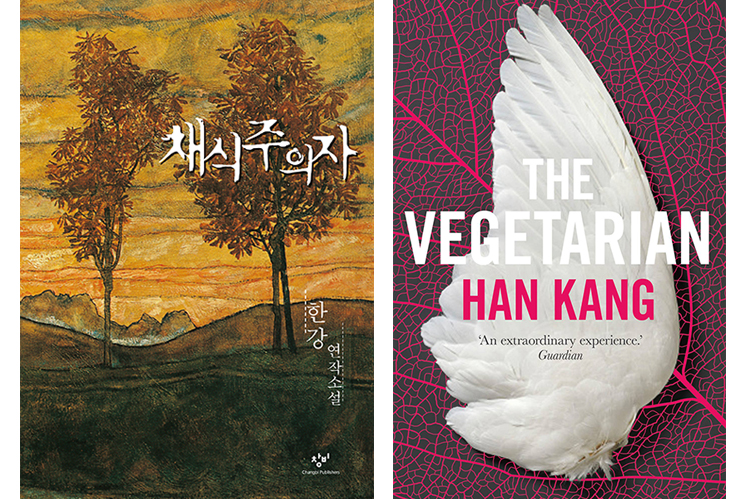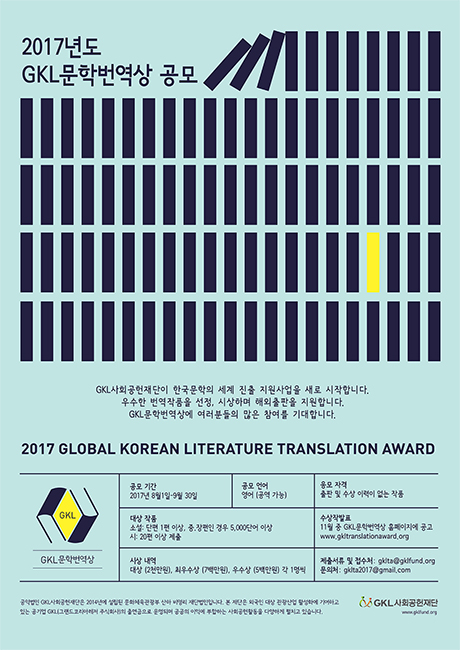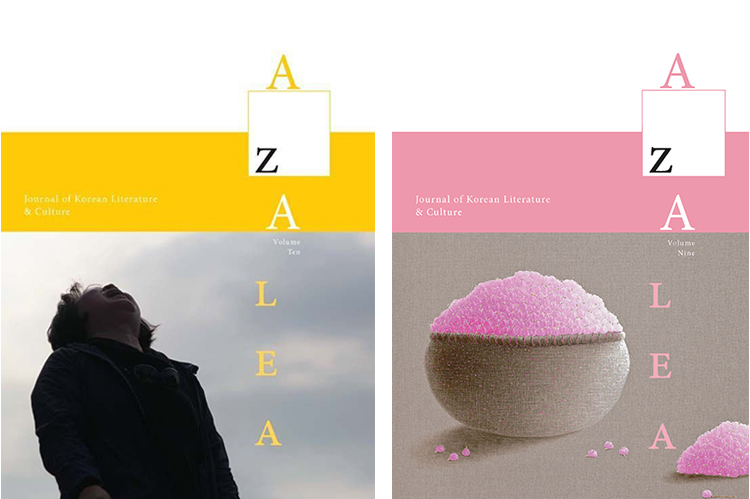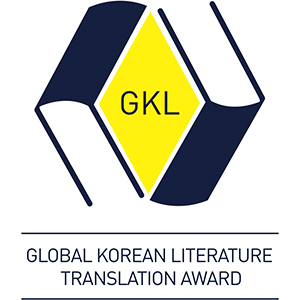|
Setting South Korean Works on the World's Literary Stage The 2017 Global Korean Literature Translation Award
2017.12.01
For Korean literature exports
In terms of the number of speakers, Korean is the 12th most spoken language in the world. After 100 years in the making, South Korea's modern literature has many treasures. When considering the quantity or quality of South Korea's literary works published every year, it is only fitting they receive the interest of the world.
The global potential of South Korea's cultural arts has already been proved through K-pop. South Korea’s movies, music and television dramas have gained popularity in many parts of the world. The terms 'K-beauty' 'K-food' have already been coined. South Korea's pop culture and ways of living are now becoming recognized throughout the world, but in comparison, our literature's foray into the world has been far below our expectations. If pop culture is a flower, the high-quality culture that is literature serves as its roots. In order to become a country that is respected beyond a loved country, we should let our high-quality culture become known.
△ Han Kang's The Vegetarian
Amid related concerns, Han Kang's novel The Vegetarian was awarded the Man Booker International Prize early this year - the news was like rain on barren land. It was the greatest news for South Korea since the English publication of Kyung-sook Shin's Please Look After Mom. There is a need for us to look at these two success cases closely. One element of success for the export of literature, without doubt, is finding a good translator, a good editor and a famous publisher abroad that will publish the book.
Many efforts have been made by government and private entities alike so far to aid the translation and export of Korean literature. The Korea Times was the first organization to start giving awards for excellence in translating in order to introduce Korean literature to the world. In 1970, the importance of translating literature and exporting it became known when Japan’s Yasunari Kawabata's Snow Country was awarded the Nobel Prize in literature. At that time, Kawabata said half of the prize should go to Edward Seidensticker, the translator.
The Korea Times award, in its 37th year now, has created a group of experts in literary translation and the contributions the award has made to the barren literary landscape of South Korea have been immense.
Status of Korean literature translations
Another public institution under the government, more specifically the culture ministry, would be the Literature Translation Institute of Korea(LTIK). The LTIK oversees programs that cultivate new translators and support translation projects. It also awards literature translation prizes. Over the years, their projects and efforts have resulted in creating many translators of literature.
The Daesan Foundation, run by Kyobo Book Centre, also gives out the Daesan Literary Award that recognizes both Korean literature and translated works. Daesan was able to focus on the importance of exporting Korean literature abroad early on and has been supporting overseas publications apart from the award system.
Meanwhile, the Yoo Yeong Research Foundation established to carry on the work of the late Yonsei University Professor Yeong Yoo English literature) has been awarding outstanding works of Korean literature translated into English. The International Communication Foundation funded by YBM also has projects aimed at nurturing new translators and works on disseminating works of Korean literature abroad with the help of overseas universities and publishers.
Thanks to the numerous award systems and funding projects, translators of Korean literature now have more opportunities and financial support than before. Former chairman of the GKL Foundation Deok-joo Lee said Han Kang's The Vegetarian winning a prominent award overseas had contributed to boosting South Korea's image worldwide as a culturally strong country.
One thing we must keep in mind is that the preference of South Korean readers does not carry over perfectly overseas. Exporting a work of literature outside South Korea after assessing its story, the literary quality of the translation and artistic quality with a South Korean-centric point of view would be a mistake. It would be just like creating a product with no knowledge of the consumer.
The GKL Translation Award that was first given out this year was launched with this exact fact in mind. The award is a cultural project that makes use of funds from the country's tourism profits from GKL(Global Korea Leisure) through the GKL Foundation. The GKL in the award's name stands for Global Korea Literature.
△ Official poster for the 2017 GKL Translation Award
The GKL Translation Award was established in order to enhance the quality of translated Korean literature and encourage their entering overseas markets by nurturing talented translators in South Korea through a global point of view. The award is given to works of excellence and aims to support promising translators as a two-tier project. The foundation has plans to increase the award money in order to encourage the participation of more translators at home and abroad.
The country's best professionals linked to international translating and those from publishers and agencies well aware of the taste of foreign readers participate in the judging process. Young-jun Lee, associate at the Korea Institute at Harvard University and managing editor of Azalea there heads the judging panel.
△ Cover art for the 9th, 10th edition of Azalea, a journal of Korean literature and culture at the Korea Institute at Harvard University
The overall management of the GKL Translation Award is overseen by the Korea Heritage Education Institute. For this, the GKL Foundation and the Korea Heritage Education Institute held a ceremony in June to mark a cooperation agreement. On July 27, a press conference was held to announce the award.
The award does not stop at just the prize giving. There is support available for the selected translated work to be introduced in overseas media and literary magazines and also for it to be published abroad through renowned publishers. The managing committee of the award is currently managing this project through long-term goals like these.
The 2017 recipients of the GKL Translation Award
A total of 44 contestants vied for the top GKL Translation Award in 2017(7 poems, 28 short novels, 9 full-length novels). There were only eight that passed the preliminary round(7 short novels, 1 full-length novel). Eight had been eliminated from the initial judging process due to the existence of a translation and or lack of paperwork handed in. The contestants were judged for the quality of their work, artistic completion, completion of translated sentences and how well the works read.
The first place award recipient received 20 million won, while second place received 7 million won and third place was awarded 5 million won. All awarded works will receive support for possible publication abroad. Those that passed the preliminary round can also receive support should they apply for it.
● Information for reference
Written by Joanne Kim (Head of the Korea Heritage Education Institute, First chairperson of the Korean Association of Translators and Interpreters) Joanne Kim (Head of the Korea Heritage Education Institute, First chairperson of the Korean Association of Translators and Interpreters) |
|||||||||||||||||||||||||||||
Pre Megazine
-

Exports Trends of Korean Books in Japan
VOL.1
2017.06 -

Suzy Lee, a Picture Book Author who is popular abroad
VOL.1
2017.06 -

Trends in Korean Book Exports
VOL.2
2017.07 -

Bookpal
VOL.2
2017.07 -

South Korea Book Exports
VOL.3
2017.08 -

South Korea's 'Genre Literature'
VOL.3
2017.08 -

South Korea Book Exports
VOL.4
2017.09 -

Where Korean readers meet books (1)
VOL.4
2017.09 -

South Korea Book Exports
VOL.5
2017.10 -

Where Korean readers meet books(2)
VOL.5
2017.10 -

South Korea Book Exports
VOL.6
2017.11 -

Where Korean readers meet books (3)
VOL.6
2017.11 -

South Korea's Book Exports
VOL.7
2017.12 -

Setting South Korean Works on the World's Literary Stage
VOL.7
2017.12 -

Book exports by authors Sun-mi Hwang, You-jeong Jeong and Jung-myung Lee
VOL.8
2018.01 -

The growth of K-Webtoons and strategy for global intellectual property
VOL.8
2018.01 -

Exports to Southeast Asia
VOL.9
2018.05 -

A Society Easily Hurt: Readers In Search of Emotional Essays
VOL.9
2018.05 -

Poetry App “Siyoil”
VOL.10
2018.06 -

K-Thrillers lead Hallyu publications in Europe
VOL.10
2018.06 -

Books with Pictures ‘Uhwa Company’
VOL.11
2018.07 -

South Korean Literature, Expanding Its clout in Global Markets
VOL.11
2018.07











